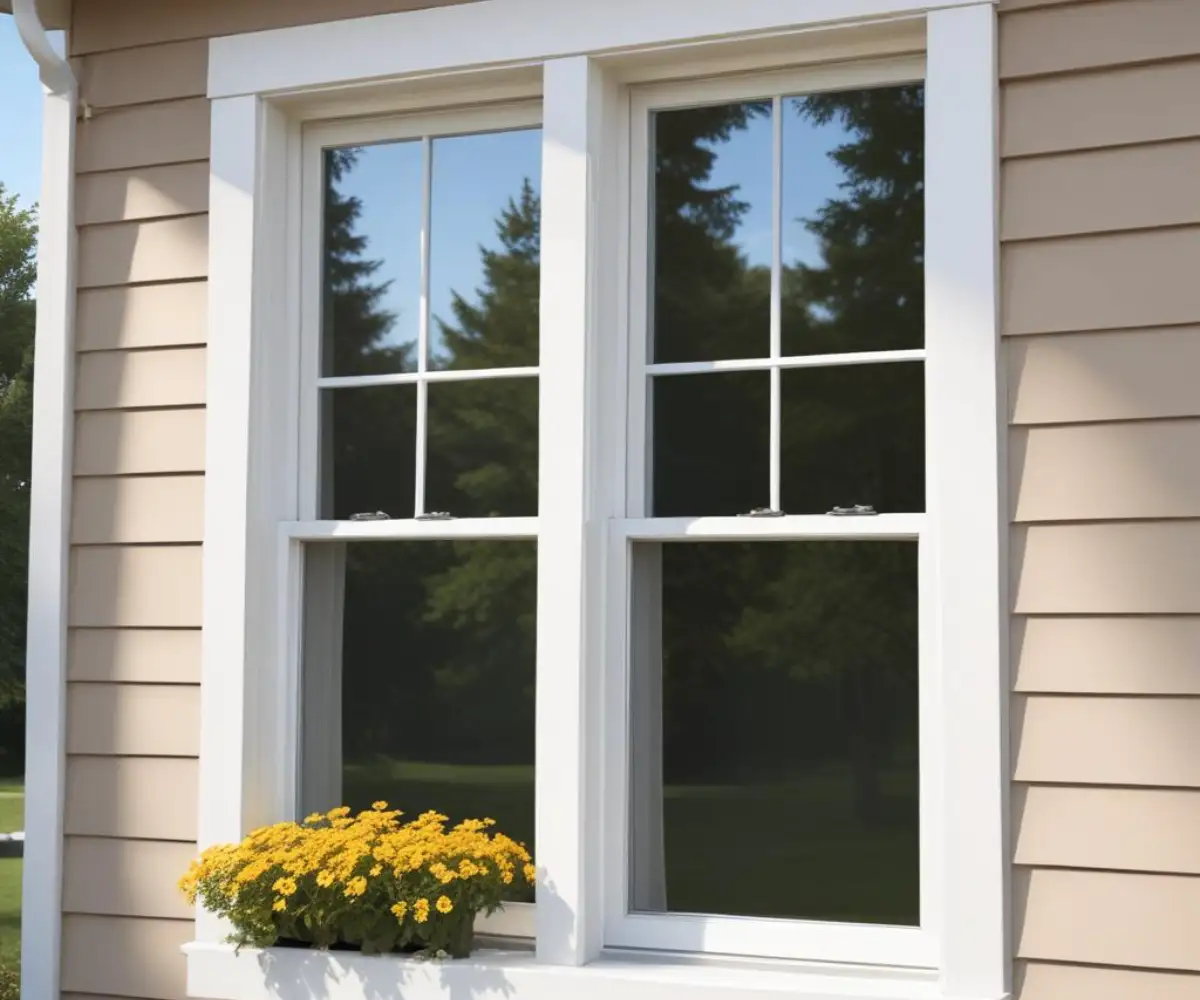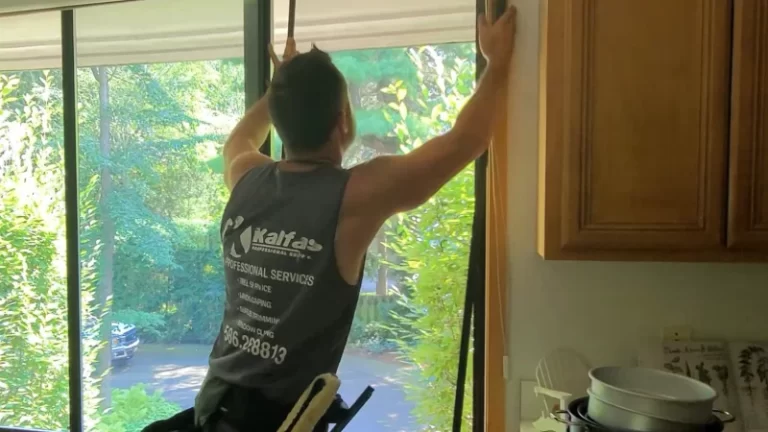Richlin Windows Review: The Hidden Truth Before You Buy
Choosing replacement windows is a significant investment in your home’s comfort, value, and curb appeal. The market is flooded with options, leaving many homeowners feeling overwhelmed and uncertain. Making the wrong choice can lead to years of drafts, high energy bills, and frustrating maintenance issues. This is the core problem: how do you sift through the marketing claims and find a window that truly delivers on its promises of quality and durability?
This uncertainty is a major pain point for anyone considering a home renovation. You’re not just buying a piece of glass and vinyl; you’re investing in your family’s comfort and your home’s long-term health. A poor window choice can result in seal failure, warping frames, and a constant battle against the elements, turning a hopeful upgrade into a costly mistake.
You'll Learn About
Unpacking the Brand: Who Is Richlin Windows?
Richlin Windows, a division of Hayfield Window & Door, is a Minnesota-based manufacturer that has been in operation since 1951. They specialize in vinyl windows and patio doors, primarily serving the Midwest region through a network of authorized dealers. Positioned as a high-performance line, Richlin aims to provide durable and energy-efficient products built to withstand harsh weather conditions, from hot summers to freezing winters.
Their main product lines include the Richlin Vinyl series (such as the 200, 500, 600, and 900 series) and the Richlin Heritage series, which offers a stainable vinyl that mimics the appearance of real wood. While they are a smaller manufacturer compared to national giants, they focus on providing a range of styles, including double-hung, casement, slider, and custom shapes, to meet various architectural needs.
The Vinyl Dilemma: Strengths and Inherent Weaknesses
At the heart of the Richlin window is its material: vinyl. Vinyl windows have become incredibly popular due to their affordability, low maintenance, and good thermal insulation properties. Unlike wood, high-quality vinyl will not rot, chip, or peel, and it doesn’t require painting. However, not all vinyl is created equal, and this is where potential problems begin.
A primary concern with any vinyl window is its reaction to temperature fluctuations. Vinyl expands and contracts more than glass, which can put significant stress on the window seals over time. This thermal movement is a leading cause of seal failure, where the insulating gas between the panes escapes, leading to condensation and a drastic drop in energy efficiency. Cheaper, lower-quality vinyl is also more susceptible to warping and distortion under prolonged exposure to intense heat, which can make windows difficult to open and close.

A Critical Look at Richlin Windows Reviews: What Customers Say
To get a clear picture, it’s essential to look beyond the company’s own claims and analyze real-world customer feedback. Reviews for Richlin windows are mixed, often highlighting a sharp divide between the product’s initial quality and potential long-term issues, which are frequently tied to the installation process and warranty service.
Positive feedback often centers on the windows’ appearance, decent energy performance numbers (like U-Factor and air infiltration rates), and the variety of available styles and colors. Some users have noted a significant reduction in outside noise and an improvement in their home’s temperature regulation after installation. However, a recurring theme in less favorable reviews involves concerns about the durability of the product and the clarity and execution of the warranty.
Energy Efficiency: Reading Between the Lines
Richlin promotes its windows as energy-efficient, and their performance data for certain models, like the 600 series, shows respectable numbers with U-factors as low as 0.28 and low air infiltration rates. They offer double and triple-pane glass options with argon or krypton gas fills and Low-E coatings to help manage heat loss and solar heat gain. These features are critical for maintaining a comfortable home and reducing utility bills.
However, while these numbers are good, they are generally considered average within the modern window market. Competing brands in a similar or slightly higher price bracket often meet or exceed these specifications. The real-world efficiency of any window, including Richlin’s, is critically dependent on the quality of the installation. A perfectly good window with a poor installation can lead to drafts and water leaks, completely negating its engineered performance benefits. When undertaking a large project like window replacement, it’s wise to consider all aspects of the renovation, as you may wonder, do I need a permit to add an interior wall if the scope expands?
The Crucial Role of Installation and Warranty
Many negative experiences with windows, regardless of the brand, can be traced back to subpar installation. Richlin sells its products through a network of independent dealers, which means the quality of the installation can vary dramatically from one contractor to another. A poorly installed window can lead to air and water leaks, operational problems, and even void the manufacturer’s warranty.
This brings us to the warranty itself. Richlin offers a limited lifetime warranty, which is transferable one time. The vinyl frame and sash parts are covered against defects like pitting and corroding. However, the insulated glass unit—the most critical component for energy efficiency—is covered by a prorated warranty after the first 10 years. This means that as time goes on, the homeowner is responsible for an increasing percentage of the replacement cost. Furthermore, the standard warranty does not cover labor costs for repairs or replacements, which can be a significant and unexpected expense for the homeowner.
Comparing Richlin to the Competition
When evaluating windows, it’s helpful to see how they stack up against competitors. Brands like Pella, Andersen, and Marvin are household names, but there are also many other reputable regional manufacturers. The key is to compare not just the price, but the material quality, performance ratings, and warranty details side-by-side.
Choosing the right window often involves a similar thought process to selecting other exterior home products. Just as you might analyze the durability and color retention when comparing PPG vs. Glidden for your siding, you must scrutinize the vinyl quality and warranty of a window. A slightly higher upfront cost for a window with a more robust frame and a more comprehensive, non-prorated warranty can save thousands of dollars and countless headaches down the road.
| Feature | Richlin Windows | Andersen 100 Series (Fibrex) | Pella 250 Series (Vinyl) |
|---|---|---|---|
| Primary Material | Vinyl | Fibrex® Composite | Vinyl |
| Price Point | Moderate | Moderate to High | Moderate |
| Energy Efficiency | Average to Good | Good to Excellent | Good |
| Glass Warranty | Limited Lifetime (Prorated after 10 years) | 20 Years (Non-Prorated) | Limited Lifetime (Non-Prorated) |
| Labor Coverage | Not Included in Standard Warranty | Varies by Installer (Often 2 years) | 2 Years (If Pella Certified Installer) |
Making an Informed Decision: Is Richlin the Right Choice?
So, should you choose Richlin windows for your home? The answer depends on your priorities, budget, and risk tolerance. Richlin windows can be a solid, mid-range option, particularly if you are working with a highly reputable installer who provides their own robust labor warranty. The product offers decent performance metrics and a good variety of aesthetic options.
However, potential buyers should be cautious. The fact that the parent company was acquired by a private equity group in 2019 and the prorated nature of the glass warranty are valid points of concern for long-term support. A window is intended to last for decades, and you want assurance that the manufacturer will be there to honor its warranty if issues arise 15 or 20 years from now. The quality of your home’s exterior, such as a unique finish like a popcorn exterior wall, can also be impacted by the long-term performance and seal integrity of your windows.
Actionable Advice Before You Sign a Contract
1. Vet Your Installer Thoroughly: The single most important factor is the installation. Get multiple quotes. Check reviews not just for the window brand, but specifically for the installation company. Ask for references and inquire about their specific installation process and what kind of labor warranty they offer.
2. Scrutinize the Warranty Document: Do not rely on the salesperson’s summary. Read the full warranty for any window you are considering. Pay close attention to what is excluded, the terms of proration, and whether labor is covered. Understand the process for filing a claim.
3. Compare NFRC Ratings: Look at the NFRC (National Fenestration Rating Council) label for any window you consider. Compare the U-Factor, Solar Heat Gain Coefficient (SHGC), and Air Leakage rates. This allows for a direct, unbiased comparison of thermal performance.
4. Consider the Long-Term Value: A cheaper window might save you money upfront, but if it fails prematurely or leads to higher energy bills, it’s a poor investment. Sometimes, paying 15-20% more for a brand with a stronger reputation and a more comprehensive warranty provides greater peace of mind and better long-term value.
Final Verdict: A Calculated Risk
Richlin windows occupy a competitive space in the window market. They are not a premium, top-tier product, but they are also not a low-end, budget option. They can perform well under the right circumstances, namely, when installed impeccably by a contractor who stands behind their work with a strong labor warranty.
The primary risks lie in the potential for long-term service issues and the prorated warranty on the insulated glass. For homeowners planning to stay in their property for many years, a window from a larger, more established manufacturer with a non-prorated warranty might be a more prudent investment. However, for a homeowner looking for a decent mid-range window and who has found a trustworthy local installer, Richlin could be a viable choice. The key is to proceed with your eyes wide open, having done thorough research on both the product and, most importantly, the installer.

